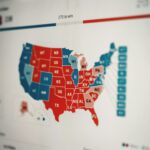Weekly Writers Round-Up: The DC Statehood Fight, Dishonest Debates over the Minimum Wage, and Building Shadier Cities
Each week, we’ll be featuring opinion pieces from the alumni and current participants of AF’s Writing Fellows Program. A few highlights from the past week are below. For more information on how the program can help launch your career in writing, or to apply for the upcoming fall class, see here.
The progressive crusade for DC statehood by Cole Carnick (Fall 2018) in Spectator
Residents of Washington DC want the federal capital to become an independent state. In 2016, 86 percent of DC voters supported a petition to Congress to permit DC into the Union as its 51st state. The chief issue for Washington residents — ‘Taxation Without Representation’ — is displayed on all their license plates: the 700,000 city residents do not have a vote in either House of Congress.
Unfortunately for Washington, though, the DC statehood movement is unpopular nationwide. According to a recent Gallup poll, 64 percent of respondents oppose the US capital becoming an independent state, while only 29 percent support the proposition. Among self-identified liberals — the most supportive demographic — only 40 percent support DC’s claim for statehood…
End the Spin in the Minimum Wage Debate by Andrew Wilford (Spring 2017) in Townhall
Less than a month into their control of the House, over 190 Democrats co-sponsored the Raise the Wage Act, which would raise the federal minimum wage to $15 an hour in the next five years—more than double the current $7.25 level. While advocates are pointing to a new Congressional Budget Office (CBO) report on the effects of the proposal as vindication, there are too many holes in the proposal and in CBO’s estimate to be taken as gospel. The Raise the Wage Act and other proposals to implement a massive minimum wage hike would in reality contribute to millions of Americans losing their jobs.
Advocates for a $15 per hour minimum wage seized on CBO’s finding that such a hike would boost the wages of 17 million workers currently working below this level and that another 10 million workers could see a boost in their wages. This increase would lead to 1.3 million Americans being lifted above the poverty line. But this is like evaluating the health impacts of chocolate cake only by measuring how much it satisfies a sugar craving. Mandating an increase in the minimum hourly wage would, yes, cause some Americans to see higher earnings…
A Plea For Shade by Nolan Gray (Fall 2015) in The American Conservative
The July 4 heat waves that swept much of the U.S. might have had you wondering how people ever lived without air conditioning. For others, the frigid air that flooded offices and homes in response served as a reminder of our overuse of air-conditioning. Online, the annual battle royale over the use of air-conditioning has rekindled and the debate has fallen along familiar partisan lines. With new calls for a ban on air conditioning, things are heating up.
After all, it’s an important question. How—and to what extent—should we keep our buildings and cities cool in a world that’s getting hotter? With the world’s rising temperatures, a growing dependence on air-conditioning alone doesn’t seem especially sustainable. But before we rush to ban AC, we ought to first consider legalizing shade in our cities…




